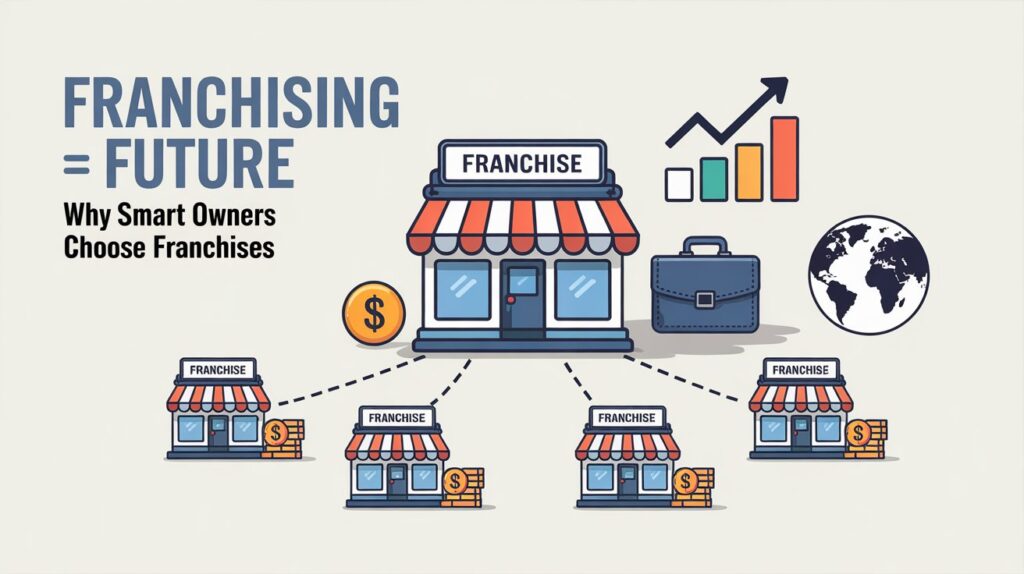Franchising is emerging as a leading model for business ownership, capturing the interest and ambition of many potential entrepreneurs. The concept allows individuals to own a business while benefiting from the established brand recognition and support of a larger company. By franchising, new business owners can navigate the complexities of starting a company with a proven system in place.

Understanding the Franchise Model
At its core, franchising involves a contractual arrangement where one party, the franchisor, grants another, the franchisee, the rights to operate a business using the franchisor’s branding, products, and expertise. This relationship aligns both parties towards mutual success. Franchisors typically offer a tested business model that includes training, marketing support, and operational guidance.
By understanding the franchise model, potential owners can grasp how they are effectively securing a business model with less risk compared to a traditional startup. Statistics reveal that franchises often have a higher success rate than independent startups. According to research, about 92% of franchise owners report satisfaction with their investment compared to the 60% satisfaction rate of independent business owners.
The Advantages of Franchising
Choosing to enter the world of franchising offers numerous benefits. First and foremost, franchises come with brand recognition that’s already established in the market, which can lead to quicker customer traction. This brand equity is invaluable as it significantly reduces customer acquisition costs for new owners. Many franchise systems offer comprehensive training programs that prepare owners to manage their operations effectively.
This shared scale of economy is beneficial in controlling costs. The built-in support system provided by the franchisor can mitigate challenges that new owners may face when learning the ins and outs of operating a business. Entrepreneurs seeking stable investments may be intrigued by the option to become a convenience store owner, leveraging strong market demands and consistent consumer needs in this growing sector. These myriad advantages collectively create an ecosystem that enhances the probability of success.
The Challenges of Franchising
While the advantages are compelling, franchising is not without its challenges. One major hurdle franchisees often face is adhering to the franchisor’s operating standards and guidelines. This degree of oversight can sometimes feel restrictive to business owners who wish to express their creativity or customize their services. There are royalty fees to consider, which can cut into profits and vary greatly between franchises.
These fees often come as a percentage of sales, creating a recurring financial commitment that must be factored into business planning. The scope of decision-making might be limited, as major changes typically require franchisor approval. Prospective franchise owners must be diligent in selecting the right franchise, as the quality of support and training can differ significantly across different companies.
The Future of Franchising
The future of franchising looks promising, backed by evolving consumer trends and the increasing preference for brand loyalty. Franchises are adapting to societal shifts, focusing on convenience and service personalization. Emerging technologies, such as mobile ordering and digital payment options, are enhancing customer experiences, and franchises are innovating to stay relevant.
Sustainability and eco-friendliness are becoming pivotal elements for consumers, leading franchises to integrate more sustainable practices into their operations. Global market expansion offers opportunities for many brands to tap into new customer bases, establishing franchises in diverse locations. As the market transforms, business models that leverage franchising will continue to evolve, allowing for creativity in strategy while still benefiting from the security of proven practices.
The Role of Technology in Franchising
Technology is a game changer in the franchising landscape. Franchise owners increasingly turn to technological solutions to streamline operations and enhance customer engagement. Point of Sale (POS) systems, inventory management software, and customer relationship management (CRM) tools improve efficiency and drive sales. Through technology, franchises can analyze consumer behavior and optimize marketing strategies to target unique demographics.
E-commerce capabilities allow franchise owners to diversify their revenue streams and reach customers beyond traditional storefronts. Online ordering and delivery platforms are gaining traction, offering. The real-time data analytics provided by modern technology have become indispensable in decision-making and strategic planning for franchise owners. Leveraging these advancements puts franchises in positions to adapt to market demands swiftly.
Emphasis on Networking and Community
Joining a franchise often means being part of a larger network of business owners. This network facilitates valuable connections and relationships, enhancing collaboration among franchisees. Many franchises organize seminars, conferences, and local chapter meetings to foster unity and the sharing of best practices. Franchisees can benefit from shared resources, advice from seasoned owners, and collective knowledge to resolve common challenges.
Such relationships contribute to a more robust business culture and often lead to innovations that further enhance the brand’s reputation. Networking can open doors to partnerships and collaborations that drive business growth. This sense of community distinguishes franchising from traditional business ownership and creates a collective momentum that benefits all parties involved.

Franchising stands out as a dynamic avenue for business ownership, combining brand power, training, and support while presenting various advantages and challenges. A thorough understanding of the franchise model, weighing its potential rewards against common obstacles, is crucial for aspiring owners. As the future of franchising unfolds amid technological advancements, the model is bound to evolve, catering to changing consumer preferences.

